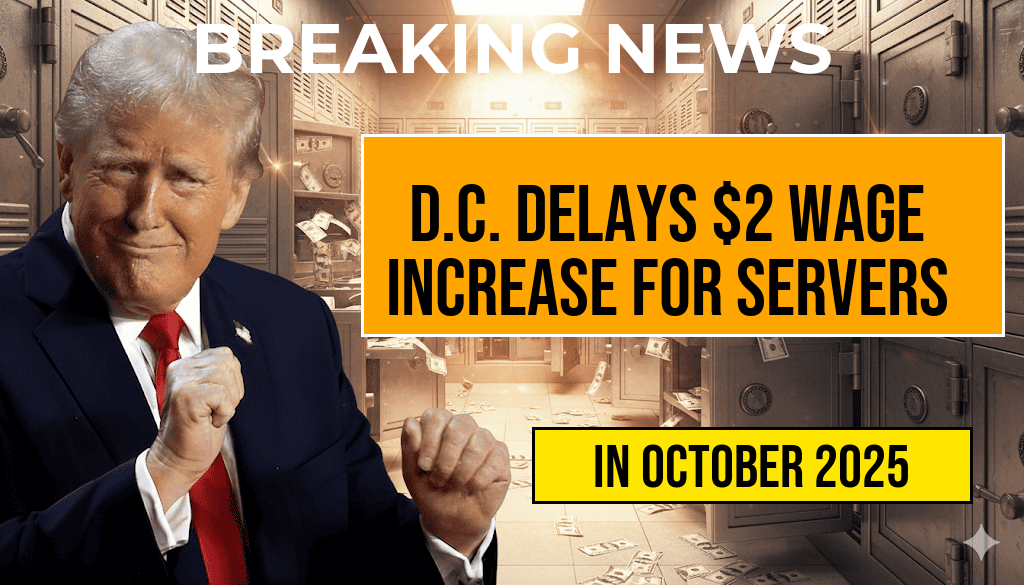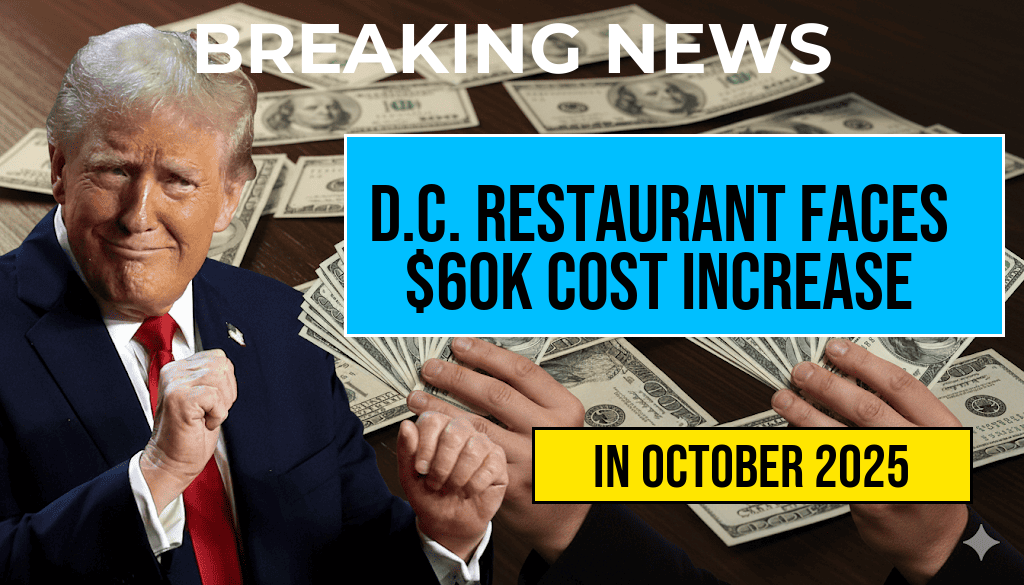The District of Columbia’s recent decision to delay a proposed $2 increase in the tipped wage has sparked concern among service industry workers. Originally set to take effect in January 2024, the increase aimed to boost the base pay for tipped workers from $5.35 to $7.35 per hour. This delay may cost servers an estimated $4,160 annually compared to the original proposal, raising questions about the economic impact on an industry still recovering from the COVID-19 pandemic. Advocates for workers argue that the postponed wage increase undermines efforts to ensure fair compensation, particularly for those relying heavily on tips for their income. The D.C. Council, facing pressure from various stakeholders, is now considering alternative measures to address the needs of both workers and employers.
Background on Tipped Wage Legislation
The tipped wage in D.C. has been a contentious issue for years. Currently, the minimum wage for non-tipped employees is $16.10 per hour, while tipped workers have a significantly lower hourly rate, relying on tips to make up the difference. The proposed legislation sought to narrow this wage gap and provide greater financial security to those in the service sector.
Economic Implications for Servers
According to estimates, delaying the wage increase could mean a significant loss for tipped workers in D.C. The average server could miss out on approximately $4,160 annually, money that many rely on for basic living expenses. This shift in policy comes at a time when many in the hospitality industry are still grappling with the lingering effects of the pandemic, including reduced hours and fluctuating customer demand.
- Current tipped wage: $5.35/hour
- Proposed tipped wage (originally): $7.35/hour
- Estimated annual loss per server due to delay: $4,160
Stakeholder Reactions
Reactions to the delay have varied across the board. Labor advocates argue that the decision reflects a lack of commitment to supporting vulnerable workers. “This is a step backward for thousands of servers who depend on tips and wages to support their families,” said Jessica Johnson, a local union representative. Conversely, some restaurant owners have expressed relief, citing concerns over increased labor costs in an already challenging economic environment.
The Role of the D.C. Council
The D.C. Council has been under scrutiny for its approach to this legislation. Members are reportedly weighing the potential impacts on both workers and the local economy. The delay may provide council members with more time to engage with stakeholders, but many are questioning whether this will ultimately lead to more equitable outcomes for tipped workers.
Future Considerations
As the council deliberates, the future of the tipped wage increase remains uncertain. The service industry is calling for more robust support and fair compensation, particularly in light of ongoing economic challenges. Advocates are urging the council to prioritize workers’ rights and consider the long-term implications of this delay.
Comparative Wage Analysis
| Aspect | Current Rate | Proposed Rate | Annual Impact |
|---|---|---|---|
| Tipped Wage | $5.35 | $7.35 | Potential gain of $4,160 |
| Minimum Wage | $16.10 | $16.10 | No change |
As discussions continue, the D.C. Council faces the challenge of balancing the needs of workers with those of business owners. The outcome of this legislative process will have lasting implications for the service industry and its workforce in the nation’s capital. For more information on labor laws and current wage standards, visit Wikipedia or Forbes.
Frequently Asked Questions
What is the main issue discussed in the article?
The article discusses the delay in implementing a $2 increase in the tipped wage in Washington D.C., which could result in servers losing approximately $4,160 annually compared to the original proposal.
Why was the tipped wage increase delayed?
The increase in the tipped wage was delayed due to concerns from various stakeholders about the potential economic impact and the feasibility of the proposed changes.
How much could servers potentially lose due to this delay?
According to the article, servers could potentially lose about $4,160 each year compared to what they would have earned if the original $2 wage increase had been implemented.
What are the implications of the tipped wage increase for servers?
The tipped wage increase is crucial for servers as it directly affects their earnings. The delay means many servers will continue to earn less than they would have with the proposed increase.
What could be the long-term effects of this delay on the service industry?
The long-term effects of the delay in the tipped wage increase could include reduced job satisfaction among servers, potential turnover, and a negative impact on the overall service industry in D.C.






